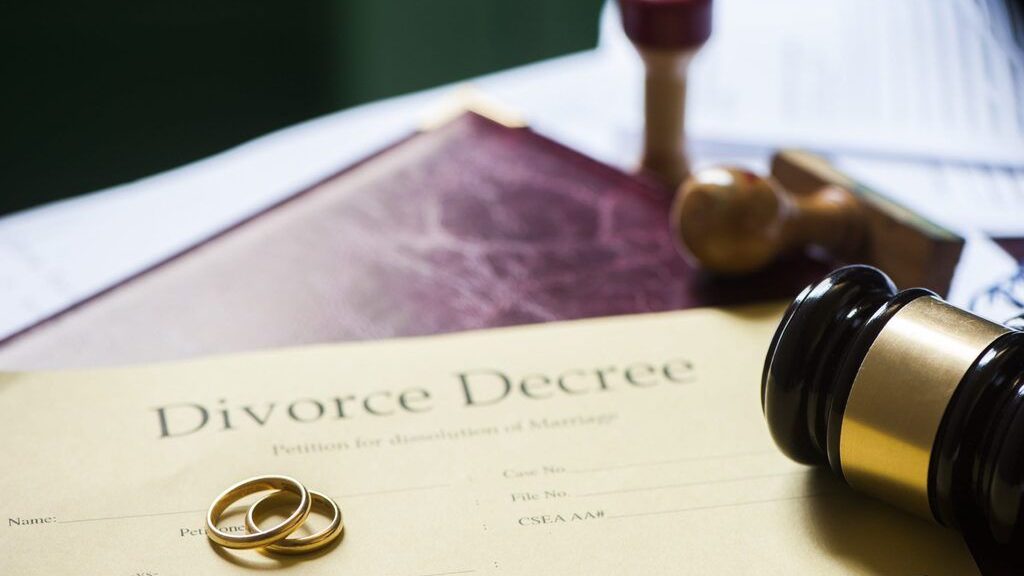Published in Family Law by Chris Eskew on January 7, 2022.

The thought of going through a divorce is stressful, and not just because it marks the end of a romantic relationship.
Getting a divorce requires you and your soon-to-be ex-spouse to either agree on all the issues that must be resolved or have a court make these decisions for you.
Because divorce laws in Indiana are complex, and a lot is at stake, most people work with an experienced divorce attorney who understands Indiana divorce guidelines.
Divorce Law in Indiana: What Issues Must Couples Resolve Before Getting Divorced?
When it comes to divorce law, Indiana is like other states in that there are certain issues that must be resolved before a judge can enter a final judgment of divorce. While every divorce is different, most involve the following issues.
Division of Property
Almost every couple going through an Indiana divorce must figure out who gets what. In most states, the first step in dividing a couple’s assets is to determine what constitutes “marital property.”
Most property obtained by either spouse or jointly during the marriage is considered marital property. However, Indiana is unique because assets owned by one spouse before the marriage may still be divided between the spouses.
When it comes to how courts divide assets, Indiana is a equitable distribution state. This means that the court distributes marital property based on what is just and reasonable.
However, there is a rebuttable presumption that the equal division of marital property is just and reasonable.
Courts consider the following factors when deciding how to divide a couple’s assets:
- The economic and non-economic contributions of each spouse at the time the disposition of the property is to become effective;
- The extent to which the property was acquired by each spouse before the marriage or through gift or inheritance;
- The contribution of each spouse to the acquisition of the property, regardless of whether the contribution was income producing;
- The conduct of the parties during the marriage as related to disposition or dissipation of assets; and
- The earnings or earning potential of each spouse as it relates to a final division of property or dtermination of property rights.
Notably, gifts or inheritances of one spouse are considered marital property and but may not be subject to equitable division. However, as noted above, the court will consider each spouse’s overall economic situation.
For example, if one spouse has a significant inheritance, the court might not award part of that inheritance to the other spouse—but it may award more of the couple’s other assets to that spouse to make up for the allocation of the inheritance.
Spousal Maintenance
Spousal maintenance is a monthly payment from one spouse to another. Divorce law in Indiana only allows courts to order spousal support in certain situations and limits the duration of spousal support payments in most cases.
For example, a court can award up to three years of rehabilitative maintenance after considering:The education level of each spouse;
Whether the spouse seeking support put their career or education on hold to raise children or maintain the home;
The earning capacity of each spouse; and
The amount of time necessary for the spouse seeking support to acquire the skills needed to find employment.
However, the court can award spousal support to a party for an indefinite period if they are physically or mentally incapacitated to the extent that the ability of the incapacitated spouse to support himself or herself is materially affected.
Similarly, a court can award support payments for a period of time and amount it considered appropriate to a spouse who lacks sufficient property to provide for the spouse’s needs and is the custodian of a child “whose physical or mental incapacity requires the custodian to forgo employment.”
Child Custody and Support
Indiana courts prefer arrangements in which each parent has a meaningful relationship with their children. Thus, whenever possible, a court will allow both parents access to their children.
In Indiana, there are two types of custody: physical and legal. Physical custody refers to where the child lives. Legal custody refers to a parent’s right to make important decisions that impact their child’s life in the areas of religion, medical care, and education.
Courts are guided by what is in the best interests of the child. When considering child custody, an Indiana court will look to the following factors:
- The age and sex of the child;
- Each parent’s wishes;
- The child’s wishes (more weight is given to wishes of a child at least 14 years old);
- The child’s relationship with each parent, any siblings, or any other person who may significantly affect the child’s best interest;
- The child’s adjustment to their home, school, and community;
- The physical and mental health of all involved;
- Evidence of a pattern of domestic violence by either parent;
- Any evidence that the child has been cared for by a de facto custodian.
Frequently, a court awards one parent sole physical custody and both parents legal custody.
However, courts will consider awarding both parents joint physical and legal custody provided the parents can effectively work together to raise their child. In either case, the court will devise a parenting time plan outlining the time each parent will have with their child.
In rare situations where one parent suffers from substance abuse issues or committed acts of domestic violence, the court may award the other parent sole physical and legal custody.
After the court makes a child custody determination, it then considers whether child support is appropriate. Under Indiana law, both parents have an obligation to support their children.
Thus, the court will often order a non-custodial parent to pay child support to the parent with whom the child primarily lives.
In Indiana, courts calculate child support by using the Indiana Child Support Rules and Guidelines. The Guidelines consider the following:
- The number of children each parent has;
- Each parent’s income;
- Whether either parent has existing child support obligations for children not of the marriage;
- Whether either spouse is paying spousal maintenance;
- Work-related child care costs;
- Health insurance costs and uninsured medical expenses;
- Post-secondary education costs; and
- The amount of time each parent has with a child.
After plugging all this information into the Guidelines, the judge will come up with a payment amount.
Are You Considering an Indiana Divorce?
If you are considering filing for divorce or you believe that your spouse is planning on filing, it is imperative that you reach out to an experienced divorce lawyer for assistance.
At Eskew Law., our Indiana family law attorneys have extensive experience helping clients through the complex and emotionally difficult process of divorce.
Our lawyers are up-to-date with the changing divorce laws in Indiana. We will aggressively advocate on your behalf from the moment you bring us on board.
We also recognize that every divorce is unique and take the time to listen to you, so we can best serve your interests. To learn more and to schedule, a free consultation, call (317) 316-8195 or contact us online today.

